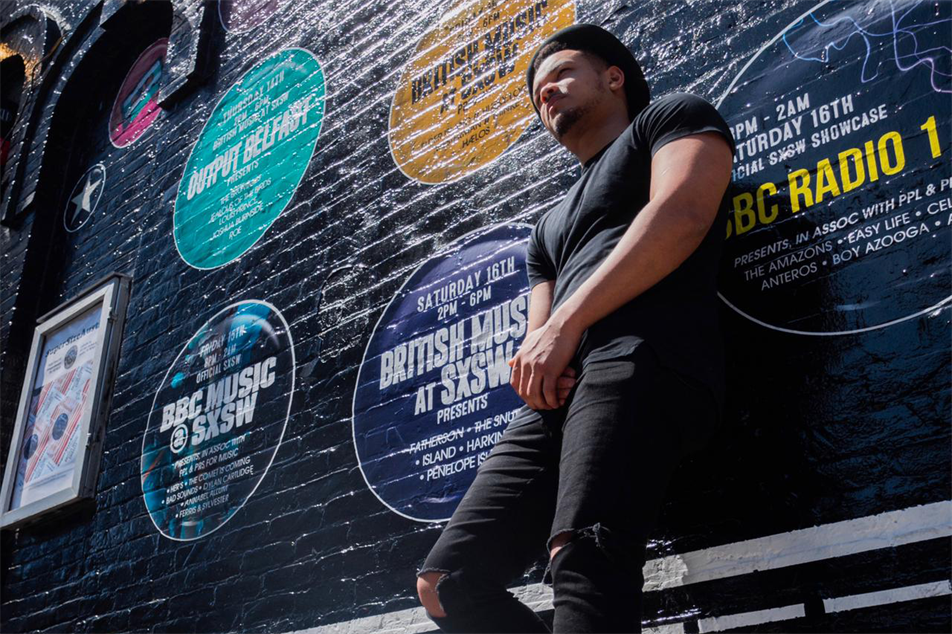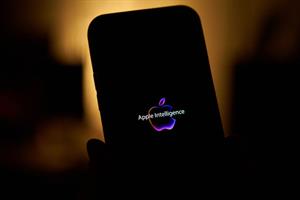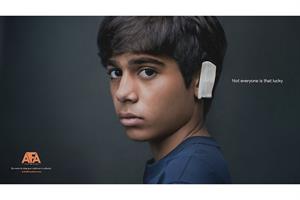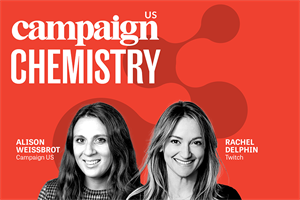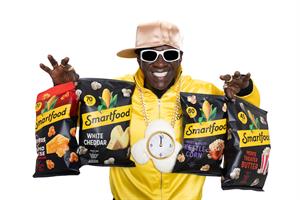One day. Eleven talks. 17 speakers.
The British Music Embassy was the backdrop for a series of debates about trust, in the first UK Brand and marketing day at SXSW.
Unprecedented political uncertainty has shaped and defined recent times in the US, UK and beyond – it has shaken and broken trust everywhere. India Wooldridge, McCann Truth Central’s SVP, director, said that people are starting to question institutions and politicians but brands are still relatively trusted; in fact 81% of people think they have the power to change the world, according McCann Worldgroup's global survey, Truth about Global Brands 2’.
So is trust the new currency… and if so, what’s its value? Can advertising actually heal a divided world?
The speakers tackled these questions, and many more, in a series of talks backed by the UK’s Department of International Trade and Promote UK, and curated by the Institute of Practitioners in Advertising (IPA), with support from the Advertising Association.
From neuroscience to AI, via Times Square and India, here are the leading moments of inspiration from the day…

1. Become a glass-box brand
Keynote speaker, Steven Bartlett, the 26 year old entrepreneur, speaker and investor and CEO of Social Chain Group, explained why social media has a PR problem.
"Social media is like being in the heart of Time Square," he said. We can no longer tell which ads are real and verified so the default safe space is to believe none of it.
You can build trust and make informed opinions when there is openness and transparency. Bartlett said that CEOs should be more like Elon Musk who smokes weed and jokes about ejaculation on Twitter, than Mark Zuckerberg who has spent the last five years "in a bunker".
He implored businesses to remove the "black walls" around them and "become a glass-box brand" to let people see inside and assess every person, action and value.
2. Don’t forget to do nothing
Heather Corker, client partner and US relationship director at Foresight Factory said that uncertain times have led to new consumer behaviors.
People are developing a "prepper mindset" in an attempt to take back control of an increasingly untrustworthy world. Brands must help people plan their future, mitigate risks and think of more long-term and sustainable solutions. People are also feeling pressured to do better and achieve more. Brands can provide customers with content, skills and experiences that will help them "enhance their lives, achieve their goals and feel validated".
Corker added that brands mustn’t forget the fun – the sort of fun that doesn’t need to have a purpose. Doing nothing is a number one priority for many people, with the majority of global consumers viewing ‘just relaxing’ as a very valuable form of entertainment.
Brands should use the time people set aside to be stress free and encourage guilty pleasures: "Stress free is the new black."
3. Put people (and privacy) before profits Danny Bluestone, CEO of user experience agency Cyber-Duck, said public trust has broken down because the internet has become a Wild West with fraud and fake news.
Danny Bluestone, CEO of user experience agency Cyber-Duck, said public trust has broken down because the internet has become a Wild West with fraud and fake news.
"Constraints like [European legislation] GDPR are good," Bluestone said. "Increasing transparency, giving the user control and respecting privacy helps build products that put people first."
When building products and services, brands must think about a "privacy by design framework". Privacy is too often seen as an afterthought but it must be the default setting.
"We need to offer privacy as a human right," he said. He also challenged brands to think bigger. Misinformation is a dangerous problem in India where people are much more likely to believe all the information they are told on their phones. Brands have a responsibility.
"We need to design for different cultures and communities because there are tens of millions of people over the world who are different to us."
4. Be brainy about neuroscience
"Agencies need to change dramatically," said Neil Davidson, managing director at HeyHuman. He argued that understanding behavioral science is key to brands and agencies tackling mistrust – and ultimately improving creative work.
Aoife McGuinness, neuroscience consultant, revealed that neuroscience can throw up unexpected findings. Research with Sony Mobile, for instance, found that ads that generated the highest cognitive engagement also had the lowest recall.
"It’s not what you would expect." McGuinness said that this begs the question of how trustworthy our critique of creative effectiveness is. "If it’s not going to be remembered by people, what’s the point?"
5. Change culture through creativity Chris Macdonald, global president advertising and allied agencies at McCann Worldgroup said that too much focus has been placed on volume, reach and eyeballs – hitting as many touch points as possible.
Chris Macdonald, global president advertising and allied agencies at McCann Worldgroup said that too much focus has been placed on volume, reach and eyeballs – hitting as many touch points as possible.
"We are not pushing creativity as hard as we should be," he said. Brands have the opportunity to change culture through thoughtful, relevant and entertaining creative work. MacDonald said that if brands don’t focus on the role they play in society, we are only reinforcing mistrust.
"Advertising does add value to people’s lives," said Caroline Davison, managing partner at Elvis. "It can educate and entertain – these are the things we have to dial up."
She said that brands reap higher financial benefit if they talk about a social issue proactively rather than reactively. "Go out with message rather than follow everyone else."
Wooldridge believes that people are actively looking for brands to play a bigger role in society. "They are more likely to say the brands they buy represent their identity. Half of people have bought a product because it has stood up for something they believe in."
Ant Hill, head of creative agency relations at Google concluded that we need more people in the room from different skill sets to drive the creative brief: "Interrogate the objectives of the brief," he said. "Because across those different siloes people share the same objectives.
 "Social media isn’t particularly social any more," said Saskia Jones, data strategy director and partner at BBH. Where social content was originally about creating work that people shared, Jones said that now the metric has become the goal: "We have become obsessed with media efficiency rather than long term creative effectiveness."
"Social media isn’t particularly social any more," said Saskia Jones, data strategy director and partner at BBH. Where social content was originally about creating work that people shared, Jones said that now the metric has become the goal: "We have become obsessed with media efficiency rather than long term creative effectiveness."
She advised creatives to focus on the primacy of the idea. While creating something that hasn’t been done before can strike terror for clients, she said that "data de-risks the fame driving idea". But rather than using behavioural data to target people and "Creep them out by following them around the internet" we should instead use it to understand what they like and where they spend time.
6. Character builds culture
System 1’s chief innovation officer, Orlando Wood, and commercial director, Will Goodhand, outlined the brain science behind emotional responses to advertising. Advertising is becoming increasingly left-brain oriented – rational, goal orientated, repetitive and literal. This is in contrast to the nuance and storytelling of some of the best-loved ads from the last few decades.
"Over the last 10 years emotional response to advertising, particularly happiness, has been falling in line with effectiveness," said Wood. He advised a more holistic approach, that brings together left- and right-brain thinking. "Advertising is a glue that holds society and culture together. Characters are common reference points for everybody who watches TV or looks at their phone."
These are things people talk about and imitate, making advertising a hugely important part of culture said Goodhand, bringing people together to start to heal the divided world.
7. Be purposeful "We’re forgetting some of the basics," said Sid McGrath, chief strategy officer at Karmarama. He warned brands to stop thinking of people as customers and start thinking of them as humans.
"We’re forgetting some of the basics," said Sid McGrath, chief strategy officer at Karmarama. He warned brands to stop thinking of people as customers and start thinking of them as humans.
McGrath said there is a "massive gap" between how brands choose to treat people and how people want to be treated – but there is huge money in getting it right. He revealed the results of Accenture Research and Karmarama’s study, Brand Nirvana: Closing the Human Experience Gap: "People will spend up to 47% more money on brands that provide a human experience rather than a customer experience," he said.
A massive part of this is having an authentic human purpose – a meaning beyond profit. But, he said, this doesn’t need to be about saving the world. It’s about being authentic and human. Empowering and inspiring your employees, and being able to remedy when you fail.
"Move from customer obsession to human obsession. Treat people as people not wallets."
 Emily Goldhill, strategic lead at Livity, added that brands have recognised the power of purpose, but "creative agencies are fucked". The brightest talent is looking elsewhere, she said – because people want to work somewhere that serves a wider purpose in society.
Emily Goldhill, strategic lead at Livity, added that brands have recognised the power of purpose, but "creative agencies are fucked". The brightest talent is looking elsewhere, she said – because people want to work somewhere that serves a wider purpose in society.
"It’s harder than ever to distinguish between creative agencies," said Goldhill. "They’re chasing clients, chasing retainers, chasing briefs – it becomes automated."
But having a specific purpose can lead to truly great work, she said – beyond winning awards and clients. "It provides a framework for your daily decision making," she said.
8. Explain "why" in a human way
Will AI wipe out planet or save it? The realty, said David Caygill, managing director, innovation at Iris Worldwide, is somewhere in the middle.
As we push into more challenging areas with AI, we are finding the need to explain why machines have made certain decisions – everything from Alexa ordering thousands of home deliveries thanks to something a newsreader has said, to a self-driving Uber killing a pedestrian.
Caygill said that the human has a crucial role to play in finding out "why?" The element of human curation is the best way to continue improving data sets and recommendations.
Jamie Sergeant, global CEO at Crowd challenged people to find the humanity within technology. People are defined and shaped by culture, and so technology must "work in a slightly different way" for each audience, he said. Personalisation is the only way to ensure we are providing something usable and human.
He added that the best effective campaigns are when brands can get customers to become brand ambassadors. It’s moving from "straight advertising to building experiences" he said.
Department For International Trade is supporting over 35 advertising and interactive UK delegate business at SXSW. This is one of a range of Department For International Trade-enabled events, including networking events, workshops and demo and meeting facilities on the UK trade stand.
@ukatsxsw
#sxsw
Eleanor Kahn


.png)
